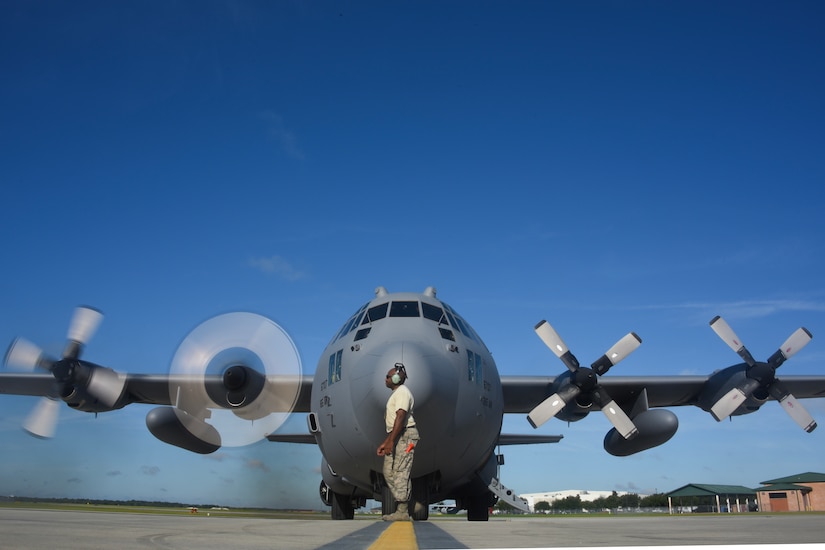By Terri Moon Cronk, DoD News, Defense Media Activity
WASHINGTON -- The Air Force would like to “do more and go
faster” in modernizing its C-130 Hercules aircraft fleet, the service’s deputy
chief of staff for strategic plans and requirements told a House Armed Services
Committee panel today.
Air Force Lt. Gen. Jerry D. Harris testified before a
seapower and projection forces subcommittee hearing on contributing Factors to
C-130 accidents and other intratheater airlift challenges.
Harris was joined by Air Force Lt. Gen. Donald E. Kirkland,
commander of the Air Force Sustainment Center, and Navy Rear Adm. Scott D.
Conn, director of air warfare in the Office of the Chief of Naval Operations.
Workhorse Aircraft
“The C-130 continues to be a workhorse and accomplishes
tactical airlift, Antarctic resupply, aeromedical evacuation, natural disaster
relief missions, search and rescue, firefighting duties and support to special
operations,” Harris told the panel.
However, hard choices must be made, he said, because of
declining budgets, late budgets of the past, sequestration spending cuts and
new strategies for changing threats.
“During this period, we prioritized safety, and then
compliance, when it comes to operating, maintaining and sustaining all of our
capabilities,” Harris said. “Readiness, lethality and cost-effective
modernization efforts [guide] our plans as we continue to deliver the world’s
greatest air and space force.”
Safe and Effective
Kirkland called the C-130 a safe, effective aircraft, adding
that the Air Force has programs in place “to ensure these conditions going
forward.”
He said Air Force Chief of Staff Gen. David L. Goldfein
recently directed all wing commanders and operational maintenance leaders to
conduct a one-day operational safety review, in which commanders assessed
processes and looked for areas of improvement to prevent accidents.
Kirkland told the panel the Air Force is committed to the
safety of its service members and Air National Guard citizen-airmen as it
continues to deliver combat power to combatant commanders.
Sustainment efforts for the Air Force’s C-130 fleet center
on a consolidation of all program depot maintenance workloads, he said, noting
the transition will be completed by fiscal year 2022. “Because all three of our
complexes operate as an enterprise, our Air Force will be able to achieve
efficiencies in greater economies of scale,” he told the panel.
Air Logistics Support
The Navy provides a continuous forward-deployed maritime
strike and expeditionary power protection force, Conn said, adding that
supporting the force calls for a unique logistics infrastructure.
That capability is Navy Unique Fleet Essential Airlift
aircraft, he said, noting that its fleet comprises 24 C-130T Hercules aircraft
and 15 C-40 aircraft for responsive, flexible and rapidly deployable air
logistics support to combat operations from the sea.
“The C-130T fills the [airlift] requirements for outside
cargo,” Conn said. “It is the only Navy aircraft capable of lifting all modules
of the F-35 engine.”
Further, he said, the C-130T provides unique ability to
deliver passengers and cargo to austere locations, including unprepared fields
and runways less than 3,000 feet long.
The Navy completed the procurement of the C-130T’s in 1996,
he said, and now is looking to recapitalize the effort beginning with advance
procurement in fiscal year 2019 by buying three aircraft in fiscal year 2023.
“But it’s not just [about] recapitalizing,” Conn said. “It’s
[about] modernizing the aircraft. We have to keep them relevant.”









No comments:
Post a Comment